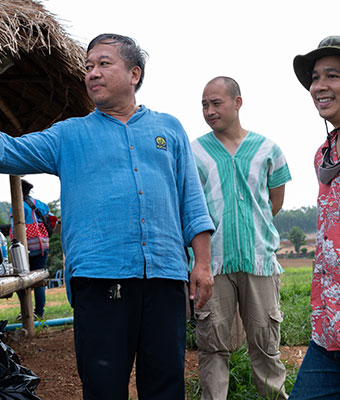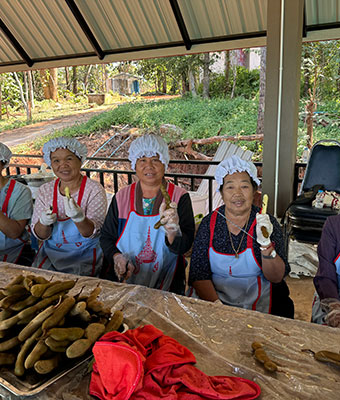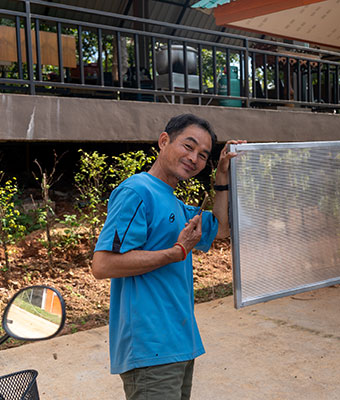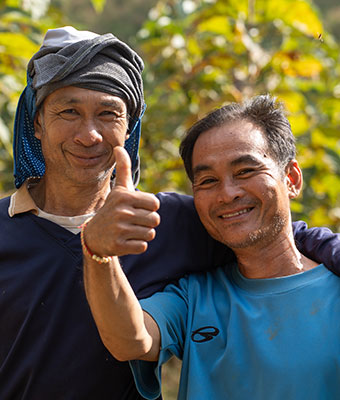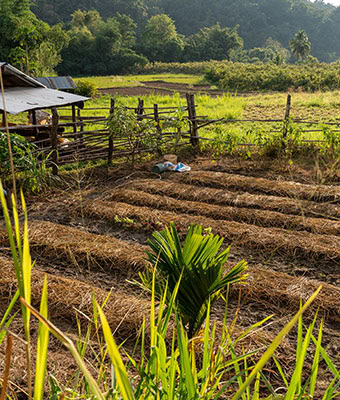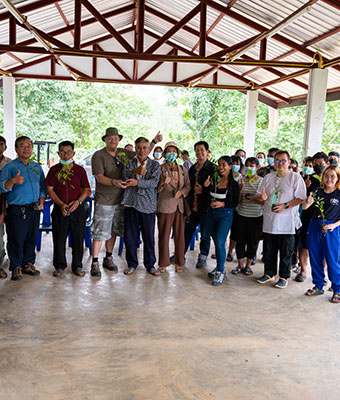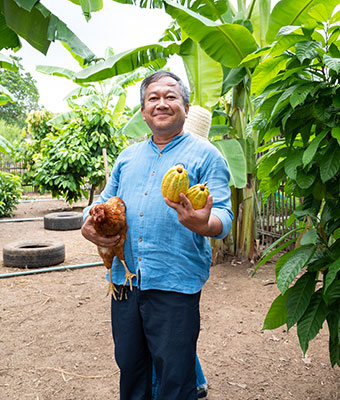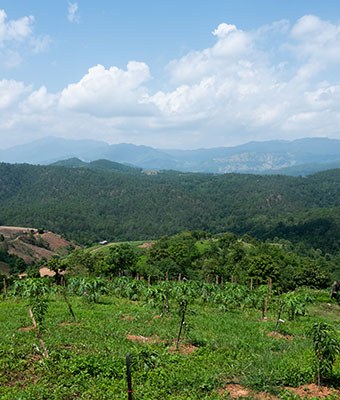FLR349: Forest Landscape Restoration Through Agroecology with World Wide Fund for Nature
ECCA has an ongoing five-year partnership with the World Wide Fund for Nature’s FLR349 in Thailand to help farmers turn their agricultural operation from forest-encroaching mono-agriculture with intensive use of chemicals into the “Three Forests, Four Benefits” agricultural system which helps to restore the environment by stopping the destruction of topsoil.
Challenge
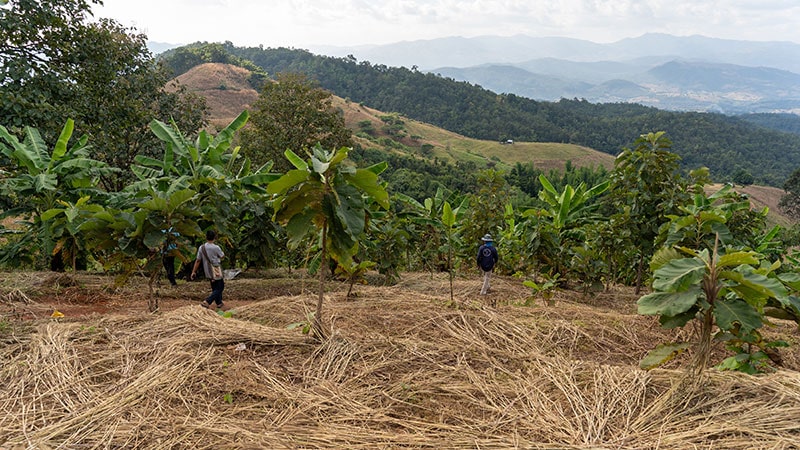 Photo by ECCAPhoto by ECCA
Photo by ECCAPhoto by ECCAThe expansion of commercial crops, particularly for animal feed, stands as a primary catalyst for deforestation in Thailand. For instance, maize plantations, essential for animal feed, have encroached upon approximately 40% of Chiang Mai’s once-thriving forests, contributing to land degradation, erosion, landslides, and significant pollution of soil, water, and air. Deforestation further disrupts forest connectivity and triggers biodiversity loss. The income of smallholder farmers hinges on monoculture crops, which often suffer from fluctuating market prices. These intertwined challenges underscore the weakening local economy and the breakdown of sustainable food production systems, eroding self-reliance within communities.
Approach
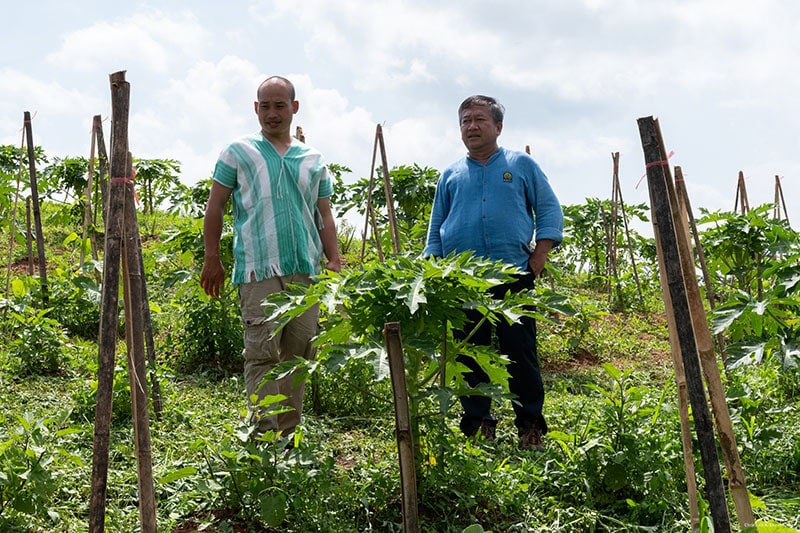 Photo by ECCAPhoto by ECCA
Photo by ECCAPhoto by ECCAThe chosen site for the project is the Dawna Tenasserim Landscape (DTL) in Mae Chaem, Chiang Mai, Thailand. This area is critical as it serves as a wildlife corridor connecting vital habitats, while its watershed supports rural livelihoods and supplies water to Bangkok. However, the expansion of monoculture agriculture in the DTL has resulted in biodiversity loss, degraded human health, increased forest fires, and watershed degradation. Farmers, whose livelihoods depend on the price of a single crop, face heightened vulnerability and cyclical debt.
Drawing inspiration from the King’s Philosophy, this project proposes an innovative approach to address these challenges. Farmers will be trained in agroecology practices to cultivate diverse crops such as perennial trees, fruit trees, vegetables, and herbs within sustainable mixed systems. These practices will not only restore forest landscapes and improve soil fertility but also act as carbon sinks and water reservoirs, facilitating resilient and safe food production. Restoration efforts will also promote ecological connectivity for wildlife and facilitate soil health recovery, ensuring sustainable livelihoods for communities in the Dawna Tenasserim Landscape.
Outcomes
Get in touch if you want to learn more about World Wide Fund’s innovative agroecology practices promoting biodiversity, soil fertility, and resilient food production systems. Contribute to their restoration efforts today through donations and join us in safeguarding critical landscapes and empowering local communities!

